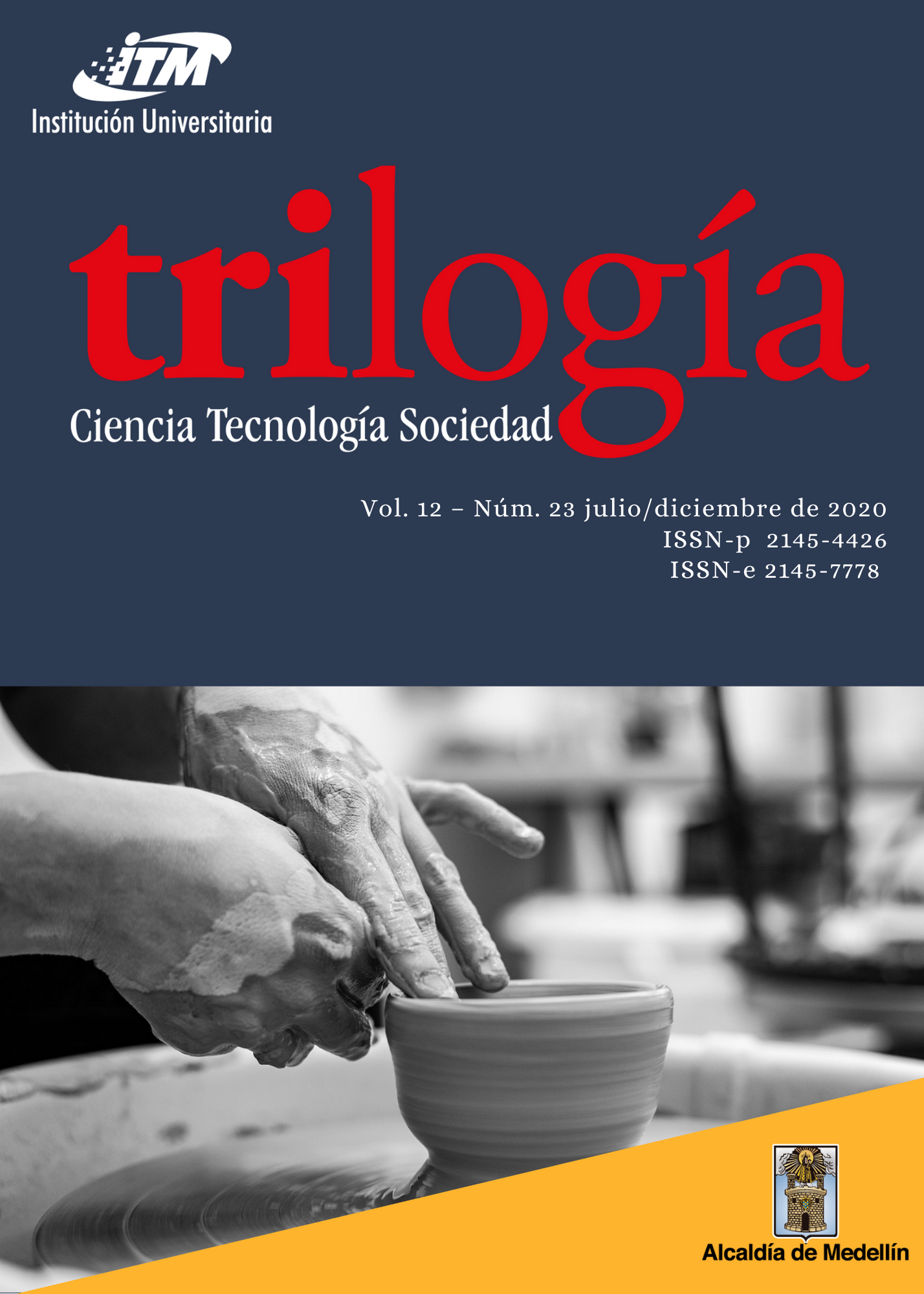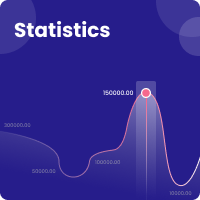Does International Scientific Aid Solve or Create New Problems? The FAO's Fishing Development Project in Argentina
Abstract
In this article I discuss the Proyecto de Desarrollo Pesquero financed by the Food and Agriculture Organization of the United Nations (FAO) in Argentina between 1965 and 1974. The Proyecto de Desarrollo Pesquero sought to contribute to solving the problem of world hunger by increasing and diversifying fishing activity in the South Atlantic. Beyond the scaremongering raised by the FAO, I look at how international scientific cooperation is helping to put scientific and social problems on the agenda of peripheral countries, rather than simply attempting to solve them. To this end, I take up recent discussions on the effects of international scientific cooperation within the framework of asymmetrical relations between central and peripheral countries. I use institutional documents from FAO and the Instituto de Biología Marina de Mar del Plata to recreate the features of their cooperation, cognitive and economic objectives and the way in which they problematized fisheries and fisheries biology. I conclude that the FAO contributed, in association with local researchers, to put on the public agenda that the Argentina Sea was being under-exploited and was therefore justified in opening it up to large foreign capitals. This scientific diagnosis had profound impacts on the future development of fisheries and some of the existing environmental problems of the Argentina Sea.
References
Aguilar Ibarra, A.; Reid, C.; Thorpe, A. (2000a). The Political Economy of Marine Fisheries Development in Peru, Chile and Mexico. Journal of Latin American Studies, v. 32, n. 2, 503-527. https://doi.org/10.1017/S0022216X00005824
Aguilar Ibarra, A.; Reid, C.; Thorpe, A. (2000b). Neo-liberalism and its impact on overfishing and overcapitalisation in the marine fisheries of Chile, Mexico and Peru. Food Policy, v. 25, n. 5, 599-622. https://doi.org/10.1016/S0306-9192(00)00014-2
AID to developing countries. (1961). Unasylva, v. 15, n. 2. http://www.fao.org/3/x5399e/x5399e00.htm#Contents
Anderson, M. S. (2011). International research collaborations: Anticipating challenges instead of being surprised. En The Europa World of Learning 2011 (61.a ed., pp. 14-18). Routlegde.
Bailey, C.; Jentoft, S. (1990). Hard choices in fisheries development. Marine Policy, v. 14, n. 4, 333-344. https://doi.org/10.1016/0308-597X(90)90055-V
Bastida, R.; Capezzani, D. A. A.; Torti, M. R. (1969). Los organismos incrustantes del puerto de Mar del Plata. https://core.ac.uk/download/pdf/153561449.pdf
Bertolotti, M. I.; Piergentili, G. V.; Cabut, D. A. (1987). El sector pesquero argentino. Investigación Pesquera, v. 51, n. 2, 193-221. http://nulan.mdp.edu.ar/428/1/00426.pdf
Boschi, E. E. (1970). Evaluación de los recursos pesqueros en el mar epicontinental argentino. Ciencia e Investigación, v. 26, n. 2, 51-70.
Campling, L.; Havice, E. (2018). The Global Environmental Politics and Political Economy of Seafood Systems. Global Environmental Politics, v. 18, n. 2, 72-92. https://doi.org/10.1162/glep_a_00453
Cañete, M. V. (2011). Instituciones y políticas públicas en la expansión pesquera de la Argentina, 1946-1976. Anuario CEEED, n. 3, 207-252. http://www.economicas.uba.ar/wp-content/uploads/2016/03/Instituciones.pdf
Capezzani, D. A. A.; Castello, J. P. (1968). Consideraciones sobre la determinación de una unidad de esfuerzo de pesca pelágica para la flota de embarcaciones costeras del puerto del mar puerto de Mar del Plata. https://agris.fao.org/agris-search/search.do?recordID=XF2016004308
Capezzani, D. A. A.; Vitullo, J. (1970). Método del muestreo doble estratificado para la determinación de los parámetros estadísticos de una población. https://agris.fao.org/agris-search/search.do?recordID=XF2016008505
Colombo, G. J. (2014). De la revolución productiva a la crisis de la merluza. El conflicto social en la industria pesquera marplatense, años 1989-2001 (Tesis de doctorado). https://doi.org/10.35537/10915/49548
Cousseau, M. B.; Castello, J. P.; Capezzani, D. A. A.; Gagliardi, R.; Silvosa, J. M. (1968). Informe sobre el plan de muestreo bioestadístico de desembarque de pescado (Subsidio CAFPTA, Plan 801). Período Enero de 1965 – Diciembre de 1967. Instituto de Biología Marina.
de Ciechomski, J. D.; Capezzani, D. A. (1969). Fecundity of the Argentinean mackerel Scomber japonicus marplatensis. Marine Biology, v. 2, 277-282. https://doi.org/10.1007/BF00351150
Díaz, E.; Texera, Y.; Vessuri, H. (1983). La ciencia periférica. Ciencia y sociedad en Venezuela. Monte Ávila Editores.
Feld, A.; Kreimer, P. (2019). Scientific co-operation and centre-periphery relations: attitudes and interests of European and Latin American scientists. Tapuya: Latin American Science, Technology and Society, v. 2, n. 1, 149-175. https://doi.org/10.1080/25729861.2019.1636620
Fernandes, P. G.; Gerlotto, F.; Holliday, D. V.; Nakken, O.; Simmonds, E. J. (2002). Acoustic applications in fisheries science: the ICES contribution. https://imr.brage.unit.no/imr-xmlui/bitstream/handle/11250/107495/sym_2002_215b.pdf?sequence=1
Gaillard, J.; Arvanitis, R. (editores). (2013). Research Collaboration between Europe and Latin America. Mapping and understanding partnership. Éditions des archives contemporaines. https://horizon.documentation.ird.fr/exl-doc/pleins_textes/divers18-03/010061605.pdf
Galison, P.; Hevly, B. (editores). (1992). Big science: The Growth of Large-Scale Research. Stanford University Press.
Gneri, F.; Nani, A. (1960). El dominio acuático, los peces y las actividades económicas derivadas. En F. de Aparicio; H. Difrieri (directores), La Argentina. Suma de Geografía (Tomo 5, 177–272). Ediciones Peuser.
Gordon, H. S. (1954). The Economic Theory of a Common-Property Resource: The Fishery. The Journal of Political Economy, v. 62, n. 2, 124-142. http://www.jstor.org/stable/1825571?origin=JSTOR-pdf
Gulland, J. A. (1966). Manual de métodos de muestreo y estadísticos para la biología pesquera. Parte 1. Métodos de Muestreo http://www.fao.org/3/X5684s/X5684s00.htm
Gulland, J. A. (1971). Manual de métodos para la evaluación de las poblaciones de peces. http://www.fao.org/3/x5685s/x5685s00.htm
Hubbard, J. (2014). In the Wake of Politics: The Political and Economic Construction of Fisheries Biology, 1860–1970. Isis, v. 105, n. 2, 364-378. https://doi.org/10.1086/676572
Instituto de Biología Marina. (1962). Memoria Anual del Instituto de Biología Marina. http://hdl.handle.net/1834/9208
Instituto de Biología Marina. (1968). Memoria Anual del Instituto de Biología Marina. Año 1967. http://hdl.handle.net/1834/9211
Instituto de Biología Marina. (1970a). 1960-1970. Diez años de labor sobre el Mar Argentino. http://hdl.handle.net/1834/9215
Instituto de Biología Marina. (1970b). Reseña del Instituto de Biología Marina. Diez años de labor. http://hdl.handle.net/1834/9225
Instituto de Biología Marina. (1973). Memoria Anual del Instituto de Biología Marina. Año 1972. http://hdl.handle.net/1834/9217
Katz, J. S.; Martin, B. R. (1997). What is research collaboration? Research Policy, v. 26, n. 1, 1-18. https://doi.org/10.1016/S0048-7333(96)00917-1
Kreimer, P. (2000). Ciencia y periferia: una lectura sociológica. En M. Montserrat (compilador), La ciencia en la Argentina entre siglos. Textos, contextos e instituciones (pp. 187-202). Ediciones Manantial.
Kreimer, P. (2006). ¿Dependientes o integrados? La ciencia latinoamericana y la nueva división internacional del trabajo. Nómadas n. 24, 199-212. https://www.redalyc.org/articulo.oa?id=105116598017
Kreimer, P. (2010). La recherche en Argentine : entre isolement et dépendance. Cahiers de la recherche sur l’éducation et les savoirs, n. 9, 115-138. https://journals.openedition.org/cres/401
Kreimer, P. (2015). Los mitos de la ciencia: desventuras de la investigación, estudios sobre ciencia y políticas científicas. Nómadas, n. 42, 33-51. https://www.redalyc.org/pdf/1051/105140284003.pdf
Kreimer, P. (2019). Science and Society in Latin America: Peripheral Modernities. Routledge.
Kreimer, P.; Levin, L. (2013). Scientific Cooperation between the European Union and Latin American Countries: Framework Programmes 6 and 7. En J. Gaillard; R. Arvanitis (editores), Research Collaboration between Europe and Latin America. Mapping and understanding partnership (pp. 79-105). https://horizon.documentation.ird.fr/exl-doc/pleins_textes/divers18-03/010061605.pdf
Kreimer, P.; Vessuri, H. (2018). Latin American science, technology, and society: a historical and reflexive approach. Tapuya: Latin American Science, Technology and Society, v. 1, n. 1, 17-37. https://doi.org/10.1080/25729861.2017.1368622
Kreimer, P.; Zabala, J. P. (2008). Quelle connaissance et pour qui? Problèmes sociaux, production et usage social de connaissances scientifiques sur la maladie de Chagas en Argentine. Revue d'anthropologie des connaissances, v. 2, n. 3, 413-439. https://doi.org/10.3917/rac.005.0413
Lerena, C. A. (2009). Malvinas, biografía de la entrega: pesca, la moneda de cambio. Bouquet Editores.
Lerena, C. A. (2013). Política pesquera para la soberanía argentina en el Atlántico Sur y Malvinas. https://www.nuestromar.org/adobe/Politica_Pesquera_Soberania_Lerena.pdf
Leydesdorff, L.; Wagner, C. S. (2008). International collaboration in science and the formation of a core group. Journal of Informetrics, v. 2, n. 4, 317-325. https://doi.org/10.1016/j.joi.2008.07.003
Mansfield, B. (2004). Neoliberalism in the oceans: “rationalization,” property rights, and the commons question. Geoforum, v. 35, n. 3, 313-326. https://doi.org/10.1016/j.geoforum.2003.05.002
Mills, E. L. (1995). From marine ecology to biological oceanography. Helgoländer Meeresuntersuchungen, n. 49, 29-44. https://doi.org/10.1007/BF02368334
Mills, E. L. (2012). Biological Oceanography: An Early History, 1870-1960. University of Toronto Press.
Moreno-Amich, R. (1990). La ecosondación como método de estudio de la dinámica poblacional de peces. Scientia gerundensis, v. 16, n. 1, 19-28. https://revistes.udg.edu/scientia-gerundensis/article/download/1768/2992
Mosbah-Natanson, S.; Gingras, Y. (2014). The globalization of social sciences? Evidence from a quantitative analysis of 30 years of production, collaboration and citations in the social sciences (1980–2009). Current Sociology, v. 62, n. 5, 626-646. https://doi.org/10.1177%2F0011392113498866
Olivier, S. R. (1986). Ecología y subdesarrollo en América Latina (3.a ed.). Siglo xxi editores.
Olivier, S. R. (1990). Universidad y las ciencias del mar. A treinta años del Instituto Interuniversitario de Biología Marina de Mar del Plata. Ciencia Hoy, v. 2, n. 10, 229-233. http://aquaticcommons.org/16722/2/CienciaHoy1990_2_10_58.pdf
Olivier, S. R.; Bastida, R.; Torti, M. R. (1968). Resultados de las campañas oceanográficas Mar del Plata I-V. Contribución al trazado de una carta bionómica del área de Mar del Plata. Las asociaciones del sistema litoral entre 12 y 70 m. de profundidad. https://agris.fao.org/agris-search/search.do?recordID=AV2012059971
Organización de las Naciones Unidas para la Agricultura y la Alimentación. (1961). El estado mundial de la agricultura y la alimentación 1961. http://www.fao.org/3/a-ap649s.pdf
Organización de las Naciones Unidas para la Agricultura y la Alimentación. (1966). Informe del primer periodo de sesiones del Comité de Pesca. http://www.fao.org/3/a-am667s.pdf
Organización de las Naciones Unidas para la Agricultura y la Alimentación. (1967). El estado mundial de la agricultura y la alimentación 1967. http://www.fao.org/3/ap655s/ap655s.pdf
Organización de las Naciones Unidas para la Agricultura y la Alimentación. (1968). Anexo E al Informe del tercer periodo de sesiones del Comité de Pesca. Discurso del contraalmirante W. Langelaar. http://www.fao.org/3/am670s/am670s.pdf
Organización de las Naciones Unidas para la Agricultura y la Alimentación. (1969). Informe del cuarto periodo de sesiones del Comité de Pesca. http://www.fao.org/3/a-am671s.pdf
Pestre, D. (2005). Ciencia, dinero y política: ensayo de interpretación. Nueva Visión.
Rodríguez Medina, L. (2014). Construyendo periferia: un microanálisis de objetos subordinantes como tecnologías epistémicas. Sociológica, v. 29, n. 83, 9-46. http://www.scielo.org.mx/scielo.php?pid=S0187-01732014000300001&script=sci_arttext&tlng=en
Rozwadowski, H. M. (2004). Internationalism, Environmental Necessity, and National Interest: Marine Science and Other Sciences. Minerva, v. 42, n. 2, 127-149. https://doi.org/10.1023/B:MINE.0000030023.04586.45
Salomon, J. J. (2008). Los científicos. Entre poder y saber. Universidad Nacional de Quilmes.
Sebastián, J. (2007). Conocimiento, cooperación y desarrollo. CTS: Revista iberoamericana de ciencia, tecnología y sociedad, v. 3, n. 8, 195-208. http://www.revistacts.net/volumen-3-numero-8/60-dossier/133-conocimiento-cooperacion-y-desarrollo
Sosiuk, E. (2019). ¿Cuál es el problema? El rol de los científicos en la construcción de problemas sociales ligados a la actividad pesquera en Argentina en el siglo XX. (Tesis de doctorado). https://doi.org/10.13140/RG.2.2.27626.67523/1
Thorpe, A.; Reid, C.; van Anrooy, R.; Brugere, C. (2005). When fisheries influence national policy-making: an analysis of the national development strategies of major fish-producing nations in the developing world. Marine Policy, v. 29, n. 3, 211-222. https://doi.org/10.1016/j.marpol.2004.05.004
Velho, L. (2002). North-South collaboration and systems of innovation. International Journal of Technology Management and Sustainable Development, v. 1, n. 3, 171-181.
Vessuri, H. (2007). “O inventamos o erramos”. La ciencia como idea-fuerza en América Latina. Universidad Nacional de Quilmes.
Wagner, C. S. (2005). Six case studies of international collaboration in science. Scientometrics, v. 62, n. 1, 3-26. https://doi.org/10.1007/s11192-005-0001-0
Wagner, C. S. (2008). The New Invisible College: Science for Development. Brookings Institution Press.
Wagner, C. S.; Brahmakulam, I.; Jackson, B.; Wong, A.; Yoda, T. (2001). Science and technology collaboration: Building capability in developing countries. https://www.rand.org/pubs/monograph_reports/MR1357z0.html
Wagner, C. S.; Park, H. W.; Leydesdorff, L. (2015). The Continuing Growth of Global Cooperation Networks in Research: A Conundrum for National Governments. PLoS ONE, v. 10, n. 7. https://doi.org/10.1371/journal.pone.0131816
Walsh, V. M. (2004). Global Institutions and Social Knowledge: Generating Research at the Scripps Institution and the Inter-American Tropical Tuna Commission, 1900s-1990s. MIT Press.
Whitley, R. (2003). Competition and pluralism in the public sciences: the impact of institutional frameworks on the organisation of academic science. Research Policy, v. 32, n. 6, 1015-1029. https://doi.org/10.1016/S0048-7333(02)00112-9
Whitley, R. (2010). Reconfiguring the Public Sciences: The Impact of Government Changes on Authority and Innovation in Public Science Systems. En R. Whitley; J. Gläser; L. Engwall (editores), Reconfiguring Knowledge Production: Changing Authority Relationships in the Sciences and their Consequences for Intellectual Innovation (pp. 3-47). Oxford University Press.
Whitley, R. (2012). La organización intelectual y social de las ciencias. Universidad Nacional de Quilmes.
Winickoff, D. E.; Bushey, D. M. (2010). Science and Power in Global Food Regulation: The Rise of the Codex Alimentarius. Science, Technology, & Human Values, v. 35, n. 3, 356-381. https://doi.org/10.1177/0162243909334242
Zugarramurdi, A.; Parin, M. A.; Lupin, H. M. (1998). Ingeniería económica aplicada a la industria pesquera. http://www.fao.org/3/v8490s/v8490s00.htm
Downloads
Copyright (c) 2020 Instituto Tecnológico Metropolitano

This work is licensed under a Creative Commons Attribution-NonCommercial-ShareAlike 4.0 International License.
Altmetric










